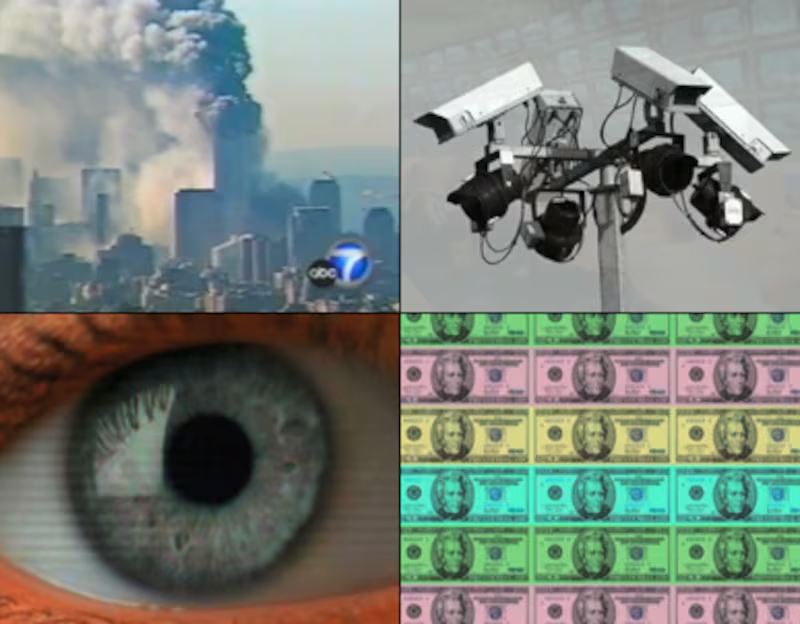We now know a little bit more about the matrix of ideas that helped inspire Jared Loughner's murderous rampage on Saturday. According to a friend of his interviewed on Good Morning America on Wednesday, the conspiracy documentary Zeitgeist "poured gasoline on his fire" and had "a profound impact on Jared Loughner's mindset and how he views the world that he lives in." He was also, according to his friend's father, influenced by the documentary Loose Change, a classic of the 9/11 Truth movement. This does not mean that either of these movies is responsible for making Loughner do what he did, but it does show how his madness was shaped by a broader climate of paranoia, and offers a clue as to why he targeted Gabrielle Giffords.

According to his friend, Zach Osler, Loughner "didn't listen to political radio, he didn't take sides, he wasn't on the left, he wasn't on the right." Naturally, conservatives have seized upon this to exonerate themselves of charges of incitement. But it's not that simple. It's hard to place Zeitgeist and Loose Change on the conventional partisan spectrum—both come from a shadowy conspiracy-mad subculture where the far right and the far left meet. Yet it's the contemporary right, the right of Glenn Beck and the Tea Party, that has mainstreamed ideas from this demimonde in an unprecedented way.
To understand how, it helps to look at the career of Alex Jones, an Austin radio host and the country's most prominent conspiracy theorist. Jones was the executive producer of Loose Change, and chunks of Zeitgeist are taken from his documentary Terrorstorm. Jones disagrees with elements of Zeitgeist—he's a Christian, while Zeitgeist attacks religion—but he's said he supports 90 percent of what's in the movie, and he promotes it on his show. "A lot of people find my work because of Zeitgeist," he said during an interview with the documentary's director, Peter Joseph.
The point, again, is not that Alex Jones, Zeitgeist, or The Tea Party are responsible for Loughner's crimes. The point is that he targeted Giffords for a reason, one rooted in his unhinged interpretation of recognizable conspiracy theories.
Both Zeitgeist and Alex Jones promote the idea that world events are controlled by a secretive banking cabal that is using debt to enslave us all. Zeitgeist echoes Alex Jones in warning that the United States is about to be merged with Canada and Mexico into a "North American Union" that will use a new currency, the "Amero." "When the time is right," Zeitgeist informs us, "the North American Union, The European Union, the African Union and the Asian Union will be merged together, forming the final stages of the plan these men have been working on for over 60 years: a one world government." This government will implant microchips in all of our arms. "In the end, everybody will be locked into a monitored control grid, where every single action you perform is documented," it says.
Zeitgeist, which came out in 2007 and has since spawned two sequels, is an Internet phenomenon. The two-hour documentary is available for free online, and according to its creators, it has been viewed tens of millions of times. Its claims are heatedly debated on Ron Paul forums and anarchist websites; excerpts appear on numerous Tea Party pages. It has a global following: When it played in a South African theater, the Cape Times described it as a "disturbing reminder" of "the subtle move towards a micro-chipped society, with the world's population potentially destined to be logged onto a monitored grid, leading up to a centralized one world economy."
If you just watch the first third of Zeitgeist, you might think it comes from the left. It begins with an attack on Christianity, arguing that Jesus never existed, and that his legend derives entirely from pre-Christian cults of the sun. Calling Christianity "the fraud of the age," it argues that the religion empowers those "who know the truth, but use the myth to manipulate and control societies."
The idea of control and manipulation is the movie's real theme, knitting together its disparate parts. Zeitgeist's second-third rehashes classic 9/11 Truth theories that purport to show that the attacks were actually an inside job. This was done, the final section argues, at the behest of a banking cabal that has repeatedly goaded the United States into war in order to solidify its wealth and power. Chip Berlet, a senior analyst at the think tank Political Research Associates and one of the country's foremost experts on right-wing movements, points out that Zeitgeist borrows liberally from the G. Edward Griffin's The Creature from Jekyll Island, an "expose" of the Federal Reserve System popular with the John Birch Society, Alex Jones, and some Tea Party groups. It also draws on ideas from the Protocols of the Elders of Zion, though it never mentions Jews.
Right-wing conspiratorial beliefs have long festered on the fringes, but in the Obama era, they've been injected into the center of our politics like never before. The distance between figures like Alex Jones and the contemporary conservative movement has shrunk alarmingly.
Steeped in the rhetoric of the militia movement, Jones has promoted just about every conspiracy theory out there: He even accused the Illuminati of putting its symbols in the Starbucks logo as a taunting show of strength. Though rooted in the right, he also occasionally has guests from the far left—he's hosted Democratic Congressman Dennis Kucinich as well as Texas Republican Louie Gohmert. His political hero is Ron Paul—he runs RonPaulWarRoom.com, and Paul is a frequent guest on his radio show. But until recently, most conservatives disdained him. In 2007, Michelle Malkin argued that Paul's association with Jones was enough to disqualify the congressman from participating in GOP primary debates.
Since then, though, Republican politics have become a lot more paranoid. Tea Party groups and Fox News started echoing Jones' warnings that the swine flu virus was really a pretext to establish martial law. Lou Dobbs went on Jones' show in 2008 to discuss the coming North American Union. In March 2009, Jones released The Obama Deception, which argued that Obama is the front man for a transnational oligarchy working to create a one-world totalitarian state. The day after it came out, the online Fox News show Freedom Watch did a joint broadcast with him. "I appreciate what you're exposing," Fox host Andrew Napolitano told Jones. "I must tell you that there was a time when the types of things that you are warning against was not discussed openly and publicly." Glenn Beck fictionalized Jones-style conspiracy theories in his 9/11 truth-themed novel, The Overton Window.
People who study the right have worried for months about the consequences of paranoid beliefs about treasonous government plots. In 2009, Berlet authored a report titled, "Toxic to Democracy: Conspiracy Theories, Demonization and Scapegoating." It traced the history and dissemination of the kind of conspiracy theories floating around the right, and said, "People who believe conspiracist allegations sometimes act on those irrational beliefs, and this has concrete consequences in the real world."
Loughner was caught up in the sort of conspiratorial fantasy Berlet was describing. His YouTube videos are often unintelligible, but in their moments of lucidity, they rail against manipulation of the currency system and the illegitimate power of the federal government, obsessions of the right-wing populist milieu. In this milieu, politicians like Gabrielle Giffords weren't simply wrong, they were agents of an intolerable tyranny manipulating the economy and turning Americans into slaves. Hence the vitriol and intimations of violence that scared Giffords and her staff well before Saturday's shooting.
The point, again, is not that Alex Jones, Zeitgeist or The Tea Party are responsible for Loughner's crimes. The point is that he targeted Giffords for a reason, one rooted in his unhinged interpretation of recognizable conspiracy theories. Right-wing activists and politicians have traded on such theories, giving them far more mainstream exposure and credibility than they ever had before. Experts on political violence have been arguing for months that this is extremely dangerous. People like Loughner are the reason why.
Michelle Goldberg is a journalist based in New York. She is the author of The New York Times bestseller Kingdom Coming: The Rise of Christian Nationalism and The Means of Reproduction: Sex, Power and the Future of the World, winner of the 2008 J. Anthony Lukas Work-in-Progress Award and the Ernesta Drinker Ballard Book Prize. Goldberg's work has appeared in Glamour, Rolling Stone, The Nation, New York magazine, The Guardian (UK) and The New Republic. Her third book, about the world-traveling adventuress, actress and yoga evangelist Indra Devi, will be published by Knopf in 2012.





